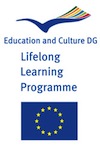Common principles
The process of adoption of common principles started in Copenhagen in 2002. In Copenhagen 31 Ministers of Education and Training, the European social partners and the Commission stated that there was a need to develop "a set of common principles regarding validation of non formal and informal learning with the aim of ensuring greater comparability between approaches in different countries and at different levels". This reflects the conclusions of the European Conference on validation of non-formal and informal learning in Oslo in May 2002.
An expert group was appointed by the Commission in February 2003 which produced its final proposal 03 March 2004 ("Common European Principles for validation of non-formal and informal learning, final proposal from the Working Group H").
This proposal was followed by a proposition of the Commission in May 2004 and by the Draft conclusions of the Council and of representatives of the Governments of the Member States on 18 May 2004 leading to the adoption of "common principles". They stressed that "common principles are necessary to encourage and guide the development of high-quality, trustworthy approaches and systems for the identification and validation of non-formal and informal learning ...and to ensure the comparability and wide acceptance of different approaches and systems". And they invited the Member States and the Commission to disseminate and promote the use of the Common European Principles:
- To encourage social partners to use and adapt them for the specific needs of the workplace
- To encourage NGOs providing LLL opportunities to use and adapt them as appropriate
- To support the exchange of experiences and mutual learning
- To strengthen co-operation with international organisations to achieve synergies
- To develop and support coherent and comparable ways of presenting the results of the identification and validation at European level
- To consider how instruments in the Europass framework can contribute to this
- To consider how these principles can contribute to the development of a European Qualifications Framework
- To support the development of quality assurance mechanisms, to disseminate good practices
This was confirmed in the final Communiqué of the Conference of European Ministers of Education in Oslo in June 2004, "Lifelong learning from rhetoric to reality". The EU Council conclusions on European principles for identification and validation of non-formal and informal learning were to be used as reference point and baseline when exploring and developing suitable practical national solutions. The European Ministers supported the emphasis in these Principles on the entitlement of individual citizens to identification and validation of their non-formal and informal learning, the importance of involving all relevant stakeholders in this process, and the need for quality assurance mechanisms to ensure credibility and trust.


.png)
